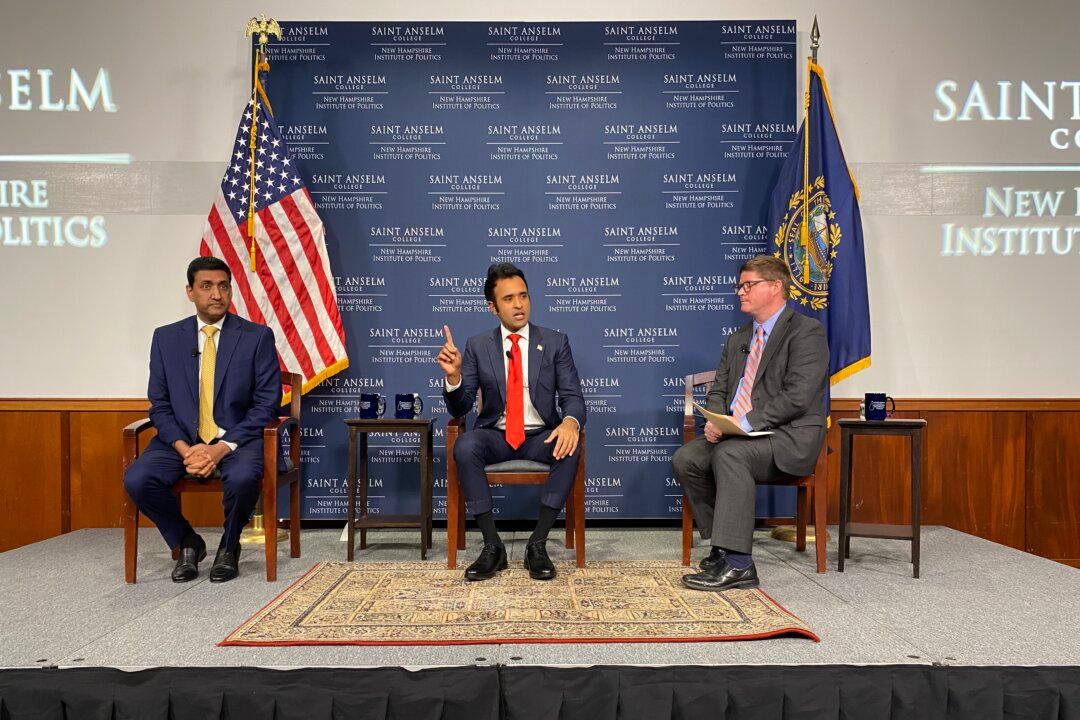MANCHESTER, N.H.–Vivek Ramaswamy says it is time for America to return to nuclear power as an energy source as a means to further reduce the country’s dependency on fossil fuels and oil-rich countries in the Middle East.
The GOP presidential candidate told a New Hampshire audience on Wednesday that nuclear energy is one of the “greatest forms of carbon-free energy products” and that it’s hypocritical for climate change activists to oppose its use.




